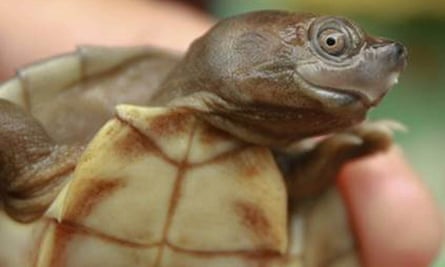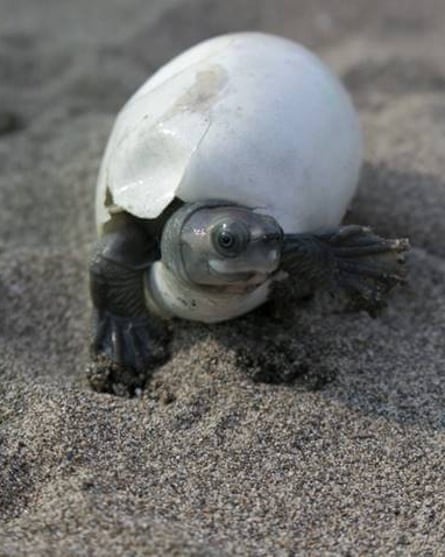Return of Myanmar's smiling turtle is reason to be cheerful
The Burmese roofed turtle was once down to a few individuals in the wild but captive breeding has been a runaway success

If you want to turn your frown upside down this morning, a story about smiling turtles saved from extinction in Myanmar might just do the trick.
The Burmese roofed hatchling, whose upturned mouth makes it appear to have a constant smile on its face, was once the second-most critically endangered turtle in the world. Only five or six adult females and two adult males are known to exist in the wild. But last week, conservationists from the Wildlife Conservation Society (WCS) and the Turtle Survival Alliance announced they had successfully raised 1,000 of the turtles in captivity, and say the smiling turtle will soon be ready for release into the wild.
As recently as 2017, officials at the WCS were still letting out a sigh of relief whenever the female turtles emerged to lay their eggs, but now it claims the turtle faces “little danger of biological extinction”.
The turtle was once abundant, but was pushed to the brink of extinction due to hunting, overexploitation of eggs, improper egg harvesting, electro-fishing and destruction of its natural habitat because of gold mining.
To recreate its natural habitat, conservationists use sandbanks as nesting sites. The sites are monitored and eggs are collected and incubated under natural conditions at a secure facility in Limpha village, Sagaing region, Myanmar.

The turtle originated in Myanmar, and was previously thought to be extinct – until researchers in a village along the Dokhtawady River in Myanmar found the shell of a recently killed turtle in 2002.
Between then and 2011, conservationists managed to grow its captive population to over 400 turtles housed at Yadanbon Zoological Gardens in Mandalay – which at the time was thought to represent “a remarkable conservation success story”.
To prevent crowding, about 50 of the turtles bred at Yadanbon Zoo were then taken to a new facility to divide the captive gene pool and prevent what the Turtle Survival Alliance called an “eggs all in one basket scenario”, risking a catastrophic loss if something happened to the turtle population at that one facility.
The turtles will eventually be returned to the Chindwin River for reintroduction to the wild.

No comments:
Post a Comment